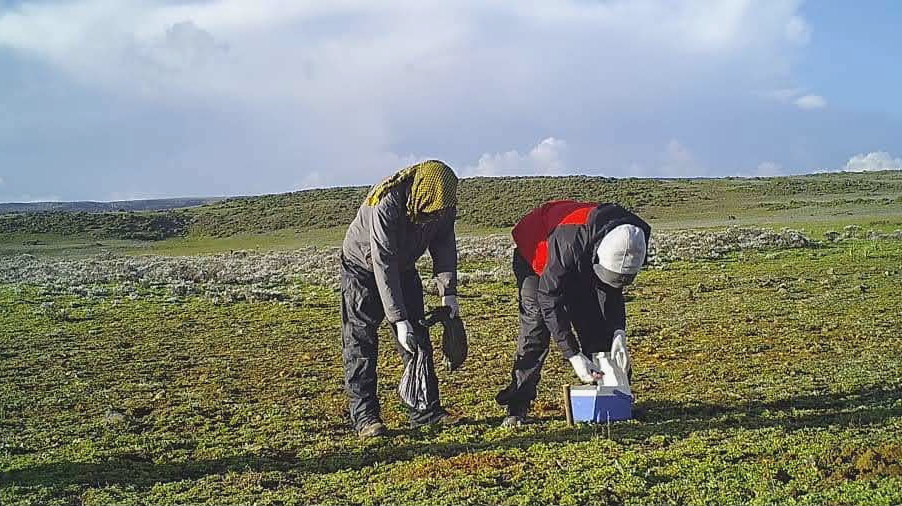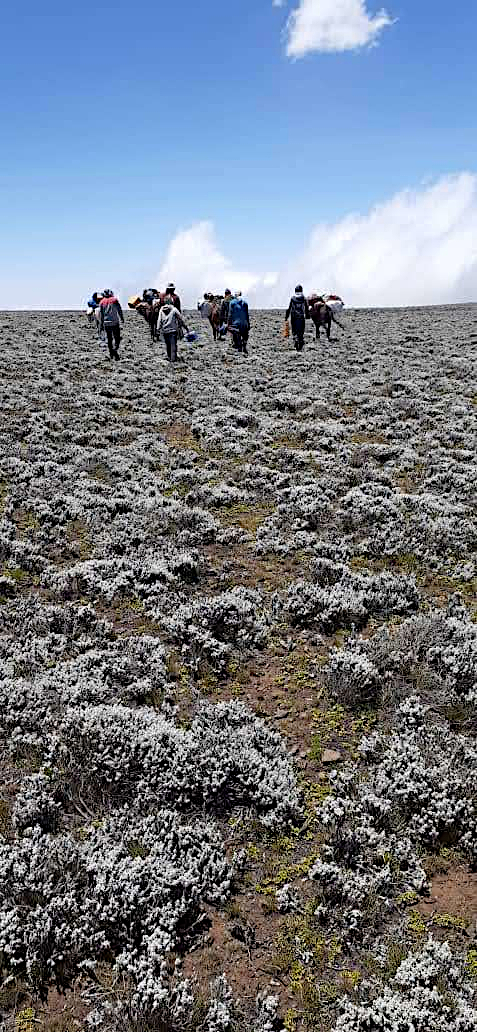

As Covid-19 continues and we all wait for a safe return to normal, the less obvious effects on wildlife become more of a concern.
Wildlife has been a major focus of conversations surrounding the pandemic, from its origins to its impacts and lessons for the future. We have seen some animals flourish where human activity has dwindled, while others have been less fortunate and may be at risk where tourism has vanished. Conservation action has of course also been affected, as a wide range of activities are no longer possible due to the risks of spreading infection. Our own work has been significantly disrupted in Ethiopia since April as a result of Covid-19.
It’s extremely important to keep our teams safe, and also to protect the communities we work closely with. The impacts of Covid-19 on wildlife, and whether it might spread to wild populations, are not yet fully understood. Mammal species could be vulnerable and, while there is any possibility of transmission between humans and wildlife, it’s vital to minimise any such contact. This meant immediately suspending some of our work.
The suspended activities include our dog vaccination campaigns, which have long been a cornerstone of Ethiopian wolf conservation - in this case to prevent the spread of two other viruses, rabies and canine distemper, to wolves.
Unfortunately, the wolves can’t wait. Their situation is much too precarious, as even a single unmanaged disease outbreak could be devastating. Thankfully, the evolution of our disease management strategy has provided an option that could give wolves the boost they need without placing anyone at risk – oral rabies vaccines.
Since 2018, our vet team has been preventatively vaccinating wolves by distributing bait containing an edible rabies vaccine sachet. Camera traps are placed at the site and capture footage of the wolves eating the bait. With this procedure, wolves don’t need to be caught and injected, and can be immunised against rabies without any contact with humans.
After adding to our normal protocol new hygiene and PPE requirements, the Ethiopian government permitted us to resume these oral vaccinations. Facemasks, gloves, distancing and disinfecting have all become part of the daily routine. Bait preparation takes place in the open air, and each task has a single person designated to perform it. Field camps are a little less sociable, with everyone using their own tent and utensils.
This month the vet team vaccinated five packs in the Bale Mountains, and two teams will soon be heading up to Menz and Arsi in the central highlands to vaccinate the wolves there – these will be the first populations outside Bale to be systematically vaccinated against rabies as part of our preventative approach. The Menz and Arsi wolves are smaller, but very important, populations.

Once there, the vet team will work with the local EWCP Monitors and Wolf Ambassadors, our links to the local communities and the community conservation area in both areas.
Along with the significant challenges the Covid-19 pandemic has thrown up is the clear message about our relationship with the environment. When we disregard the health of wildlife and the environment, we run the risk of jeopardising human health. Conservation can benefit not only the species protected, but all of us.
